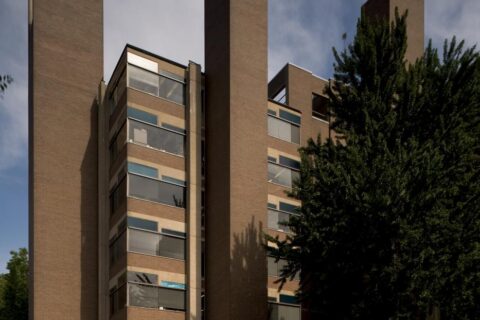Guide to Philadelphia Rental Law

Introduction
Navigating the rental market in Philadelphia can be challenging for both landlords and tenants. Understanding the intricacies of Philadelphia’s rental laws is essential for maintaining a harmonious landlord-tenant relationship and ensuring legal compliance. This guide provides an overview of the key aspects of landlord-tenant laws in Philadelphia, including eviction procedures, security deposit regulations, and rental property maintenance requirements. Whether you are a potential landlord or tenant, this comprehensive guide will help you understand your rights and responsibilities under Philadelphia rental law.
Benefits for Landlords
Philadelphia rental laws offer several benefits for landlords, ensuring their investments are protected and their properties are managed efficiently.

Legal Protection
- Lease Agreements: Clear and legally binding lease agreements help landlords protect their properties and define tenant responsibilities.
- Eviction Procedures: Philadelphia’s structured eviction process ensures landlords can reclaim their property in cases of lease violations or non-payment of rent.

Financial Security
- Security Deposits: Regulations regarding security deposits protect landlords from potential property damage and unpaid rent.
- Tax Incentives: Landlords in Philadelphia may qualify for various tax incentives and deductions related to property maintenance and improvements.

Property Management
- Maintenance Requirements: Landlords must maintain their properties to a certain standard, ensuring tenant safety and property value retention.
- Inspection Programs: Regular property inspections help landlords identify and address issues before they become significant problems.

Benefits for Tenants
Philadelphia’s rental laws are designed to protect tenants’ rights and ensure they have a safe and fair renting experience.
Tenant Rights
- Right to Safe Housing: Tenants are entitled to live in habitable conditions with proper maintenance of essential utilities and safety features.
- Protection from Unlawful Evictions: Laws protect tenants from being evicted without just cause and due process.
Financial Protections
- Security Deposit Limits: There are limits on the amount landlords can charge for security deposits and rules for their return.
- Rent Control: While not widespread, certain areas and properties may be subject to rent control measures, protecting tenants from exorbitant rent increases.
Dispute Resolution
- Mediation Services: The city offers mediation services to help resolve disputes between landlords and tenants amicably.
- Legal Resources: Various organizations provide legal assistance to tenants facing unfair treatment or eviction.
Key Aspects of Philadelphia Rental Law
Eviction Procedures
Eviction in Philadelphia is a regulated process that requires landlords to follow specific steps:
- Notice to Quit: Landlords must provide a written notice to quit, giving tenants a chance to rectify the issue or vacate the property.
- Filing a Complaint: If the tenant fails to comply, the landlord can file an eviction complaint with the Municipal Court.
- Court Hearing: Both parties will attend a hearing where they can present their case.
- Judgment: If the court rules in favor of the landlord, a judgment for possession is issued.
- Order of Possession: A final notice is given, and if the tenant does not leave, the landlord can request a lockout by the court.
Security Deposit Regulations
Philadelphia has specific rules regarding security deposits:
- Maximum Amount: The maximum security deposit a landlord can charge is equivalent to two months’ rent during the first year of tenancy.
- Interest on Deposits: After the first year, landlords must pay interest on the security deposit annually.
- Return of Deposit: The security deposit must be returned within 30 days after the tenant vacates, minus any legitimate deductions for damages.
Rental Property Maintenance
Landlords are required to maintain their rental properties to ensure they meet safety and health standards:
- Housing Codes: Properties must comply with local housing codes, including proper sanitation, structural integrity, and functional utilities.
- Repair Timeliness: Landlords must address repair requests promptly to maintain habitable living conditions.
- Lead Paint Disclosure: Properties built before 1978 must be inspected for lead paint, and landlords must disclose any hazards to tenants.
Case Studies
Successful Utilization of Philadelphia Rental Laws
Case Study 1: Protecting Tenant Rights A tenant faced unlawful eviction after requesting necessary repairs. Utilizing local tenant protection laws and mediation services, the tenant was able to remain in their home while the landlord completed the required repairs.
Case Study 2: Landlord Securing Property A landlord discovered significant damage caused by a tenant. By following the proper eviction procedures and utilizing the security deposit regulations, the landlord successfully reclaimed the property and covered repair costs without legal disputes.
Addressing Common Challenges
Common Challenges and Solutions
Challenge 1: Non-Payment of Rent
- Solution: Clear lease agreements and understanding eviction procedures can help landlords address non-payment issues efficiently.
Challenge 2: Maintenance Disputes
- Solution: Regular property inspections and prompt repair responses can prevent disputes over property conditions.
Challenge 3: Security Deposit Disputes
- Solution: Documenting the property’s condition before move-in and after move-out helps clarify legitimate deductions from security deposits.
Understanding and adhering to Philadelphia rental laws is crucial for both landlords and tenants. These regulations provide a framework for fair and safe rental practices, ensuring a balanced relationship. Whether you’re a landlord seeking to protect your investment or a tenant wanting to secure your rights, knowledge of these laws is empowering.
For more personalized assistance and professional property management services, consider partnering with PhillyLiving Management Group. Our experts can guide you through every step of the rental process, ensuring compliance and peace of mind.

About the Author
About the Author
Jamie Golden, the author of this guide, is a seasoned property management professional dedicated to empowering landlords and tenants alike. With a wealth of experience and expertise, Jamie navigates the complexities of rental laws with finesse. Connect with Jamie on LinkedIn to access her insights and expertise in property management: Jamie Golden’s LinkedIn Profile
References
- Philadelphia Code of Ordinances. (n.d.). Retrieved from https://www.phila.gov/phillycode/
- Community Legal Services of Philadelphia. (n.d.). Tenants’ Rights Manual. Retrieved from https://clsphila.org/
- Pennsylvania Landlord-Tenant Act. (1951). Retrieved from https://www.legis.state.pa.us/




